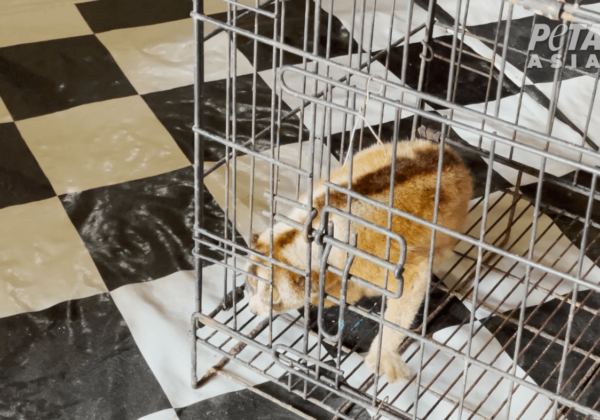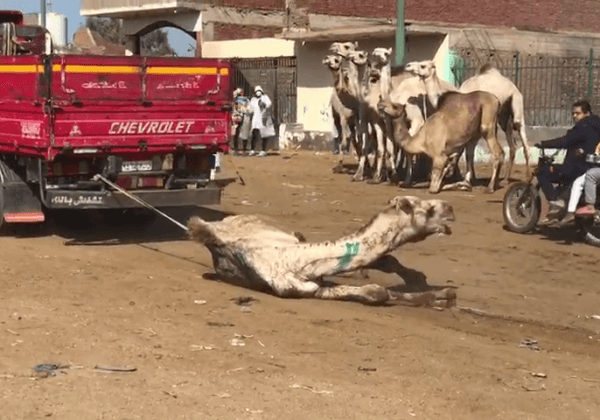Animals Suffer for Cruel ‘Sports’
Horse Racing: A Losing Bet
Horses die on and off the track in horse racing. They are the victims of a profit-driven industry in which their lives are commodities to be bought, sold, and tossed aside when they are no longer making money. Even top prize winners like Kentucky Derby winner Ferdinand, who won almost US$4 million in prize money, reportedly ended up dead in a Japanese slaughterhouse after he could no longer bring in large fees for his stud services.
Horses used for racing can weigh more than 450 kilograms, yet they are supported by ankles the size of a human’s. Horses are whipped and forced to run on tracks at breakneck speeds while carrying people on their backs. They are often pumped full of drugs intended to mask pain so that they keep running long after their stressed or injured bodies would tell them to stop.
Few horses are retired to pastures when they get injured or stop winning races. Every year, many Thoroughbreds are sold to stables in Japan, where 90 percent of all horses end up in slaughterhouses. In most Japanese slaughterhouses, horses are killed and cut apart and end up as food for dogs and humans.
What You Can Do
Help phase out this exploitative “sport”: Refuse to patronize existing tracks, work to ensure that racing regulations are reformed and enforced, lobby against the construction of new tracks, and educate your friends and family members about the tragic end that most horses experience.
Pigeon Racing: The Deadliest Marathons
Pigeon racing takes place all around the globe, and this deadly “sport” is gaining popularity throughout Asia, especially in China, where a rapidly growing elite is fueling the demand.
To “motivate” the birds to race faster, pigeon racers take them away from their eggs so that the parents will desperately fly back to their nests. After the races are over, most of the pigeons who did not finish in the money or make it back fast enough are killed.
More than a million pigeons die every year during Taiwan’s seasonal pigeon races—grueling sets of seven races over open ocean from ever-increasing distances. Young birds—not even a year old—are shipped out to sea, released in the middle of the ocean, and forced to fly back home even in the midst of typhoon-strength winds. Most often, less than 1 percent of these highly intelligent birds complete each seven-race series—many drown from exhaustion, die in the storms, or are killed afterward for being too slow.
What You Can Do
Help put an end to this deadly “sport”: Avoid participating in pigeon racing, speak out against the cruel use of pigeons for gambling by calling on government agencies to investigate pigeon-racing rings, and educate your friends and family members about how many birds suffer and die for this pastime.
Fishing: Aquatic Agony
Billions of fish die every year in nets and on hooks. Some are destined for human consumption, many are tortured just for “sport,” and others are unintended victims who are maimed or killed simply because they are in the wrong place at the wrong time.
When fish are yanked from the water, they begin to suffocate. Their gills often collapse, and their swim bladders can rupture because of the sudden change in pressure. Numerous scientific reports from around the world confirm that fish feel pain. Researchers from Edinburgh and Glasgow universities studied the pain receptors in fish and found that they were strikingly similar to those of mammals. The researchers concluded that “fish do have the capacity for pain perception and suffering.”
The psychological stress of being caught and released is undeniable. Catch-and-release victims become easy prey after suffering from the shock of being ripped out of their natural environment and handled. They may not be able to swim away or fend off predators.
Be a Friend to Fish
Fishing is no fun for those on the other end of the line. Before you support a “wildlife” or “conservation” group, ask about its position on fishing. Some groups support fishing outright or do not oppose it.










